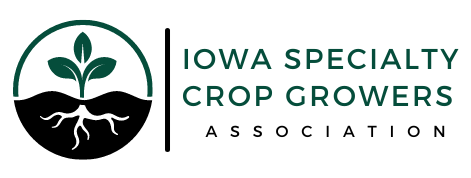Mushroom gatherers and wild-harvested mushroom sellers from across the state are encouraged to attend Iowa State University Extension and Outreach’s Wild-Harvested Mushroom Certification Class this spring. The class is an especially important resource for those looking to sell wild-harvested mushrooms, as sellers are legally required to complete a certification workshop in order to sell eight different varieties of wild-harvested mushrooms.
In-person workshops will be held March 23, April 6 and April 20, and registration is $60. Visit the ISU Extension and Outreach Integrated Pest Management website to register.
According to Chelsea Harbach, plant disease diagnostician with ISU Extension and Outreach, it is essential to distinguish commonly harvested mushroom species from look-alikes, as people can be poisoned by eating misidentified mushrooms.
The state of Iowa legally requires a certification workshop that covers identifying mushrooms and distinguishing them from lookalikes if selling morel, oyster, chanterelles, hen of the woods, chicken of the woods, lion’s mane, pheasant back and black trumpet. Iowans who have not been certified to sell morel mushrooms for three or more years must recertify this year.
“Don’t plan on selling the mushrooms you forage? No problem!” added Harbach. “This workshop will provide every participant a strong foundation in mushroom identification and distinguishing edibles from poisonous lookalikes. All knowledge levels are welcome.”
Registration is $60, and in-person workshops will be held March 23, April 6 and April 20. Registration is open to out-of-state individuals who hunt and sell in Iowa; however, additional certification may be required to sell in other states. To register, visit the Iowa State University Extension and Outreach Integrated Pest Management Website. Email pidc@iastate.edu for questions about the training.
Additional resources on safe mushroom harvesting are also available from Iowa State University Extension and Outreach.
–Acreage Living Newsletter, Small Farm Sustainability, Iowa State University Extension & Outreach


